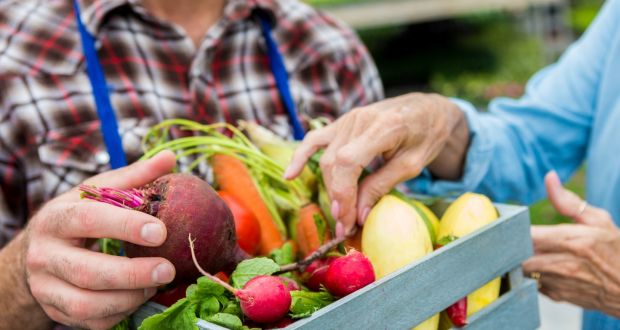Dublin to Donegal: climate action project to encourage community input

Bohemians FC one of the first organisations to sign up for the people’s transition project
Two very different communities – Phibsborough on Dublin’s northside and the village of Ardara in west Donegal – are to join forces in a unique partnership embracing climate action while seeking to nurture local development.
The people’s transition project devised by TASC, the independent think tank for action on social change, aims to get community groups to work out what’s best for their areas in addressing climate change, while also ensuring better and healthier standards of living.
“Whether you’re living in the inner city or a small rural town, we all want a decent standard of living and to live as part of a thriving and prosperous community,” said Seán McCabe of TASC Climate Justice Centre. The approach has had notable success in Preston, UK and in Cincinnati, US.
“When we include people in decisions, when we co-create solutions with them, and when people see that actually things can get much better, not worse, with climate action, then they will want to be part of that,” he added.
The reality was people wanted to protect the planet for future generations, but also have very real and immediate concerns for their lives now, Mr McCabe added. This meant public spending on climate action must be channelled into job creation, community businesses and local production opportunities where possible.
The strategy was set out first in an EU report produced by TASC last November. It was informed by Mr McCabe’s findings after taking a campervan trip around Ireland, talking to food producers, community representatives, farmers and fishers to listen to their aspirations and concerns for the future.
“There wasn’t any real opposition to climate action, but there was opposition to lives being made more difficult,” he noted.
One of the organisations participating in Phibsborough is Bohemians Football Club which recently appointed Mr McCabe – a local resident and supporter – as climate justice officer; a move that attracted media interest all over the world.
Its chief operating officer Daniel Lambert said: “We know we are in a fight for our future against the climate crisis. We need communities to pull together. The ethos behind this project speaks to the culture in Bohemians FC. We are a fan-owned club…we try to ensure all our members voices are heard and that everyone is included.
“In a similar way, this project is trying to demonstrate that, by listening to community voices, the responses to climate change can be community owned and benefits of it can be shared widely.”
While Ardara faces distinctly different challenges, local businesswoman Lauren McHugh said living in the village was all also about “feeling supported” and people rallying around in the best interests of their community. They wanted their community to survive post Covid, she said, and to apply that solidarity to climate action.
Local contributions
Áine Macken-Walsh of Teagasc said primary food producers such as farmers and fishers were concerned about climate change but fear being sidelined, when the dominant approach is getting acceptance “for priorities that have already been set”.
“They don’t see themselves as part of the solution,” she added, but if they were allowed co-design and contribute to local projects it would increase likelihood of success in rural and coastal areas.
Áine O’Gorman from Stop Climate Chaos, who runs the One Future Campaign for faster and fairer climate action, said people wanted both strong local action and access to their politicians and policymakers. This initiative would allow a learning space for other communities to emerge, including a sharing of knowledge and expertise, she believed.
“The TASC model empowers communities to plan their transition [to a low carbon economy] in a way that keeps community at the heart of it,” said Mary Whitelaw director of sustainability at AIB, which is supporting the initiative.
Pilot projects in both locations will run in August, with rounds of “community mapping” and consultation to identify key priorities and needs. Reports will then document the local landscape, needs and opportunities, as well as “key, costed climate solutions that can be implemented locally”.
Source: The Irish Times
